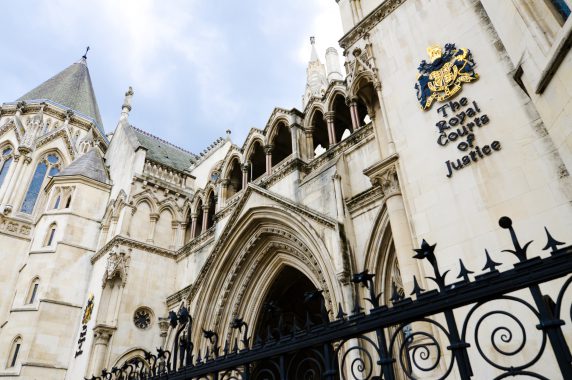Hunt orders ‘rapid review’ into use of manslaughter charges against doctors

The health secretary has announced a review into the application of gross negligence manslaughter charges in medicine following the Dr Hadiza Bawa-Garba case.
Jeremy Hunt told the House of Commons today that the review will be led by former Royal College of Surgeons president Professor Sir Norman Williams, and will report back by April 2018.
Professor Williams will attempt to ensure medical professionals know where they stand with respect to criminal liability, and the review will look into what lessons the GMC can learn.
Dr Bawa-Garba was convicted on gross negligence manslaughter charges in 2015 following the death of 6-year-old Jack Adcock in 2011.
This year, the GMC won a High Court appeal against its own tribunal service to strike Dr Bawa-Garba off the GMC register permanently.
However, the medical profession has vocally protested the decision, pointing out that there were major systemic problems in the Leicester hospital where she was working, and that the tribunal service said she was fit to practise.
Mr Hunt himself tweeted his concerns around the verdict, and what it would mean for openness and transparency in the NHS, after Dr Bawa-Garba’s own reflections to her senior consultant were used in court.
Speaking in the Commons today, he reiterated that he couldn’t comment on the case itself, only to say that it had ‘caused huge concern’.
He told MPs: ‘So today I can announce that I have asked Professor Sir Norman Williams, the former president of the Royal College of Surgeons and my senior clinical adviser, to conduct a rapid review into the application of gross negligence manslaughter in healthcare.
‘Working with senior lawyers, Sir Norman will review how we can ensure the vital role of reflective learning, openness and transparency is protected so that mistakes are learned from and not covered up; how we ensure there is clarity about where the line is drawn between gross negligence manslaughter and ordinary human error in medical practice so that doctors and other health professionals know where they stand with respect to criminal liability or professional misconduct; and any lessons that need to be learned by the GMC and other professional regulators.
‘I will engage the devolved administrations, the justice secretary and the Professional Standards Authority for health and social care in this vital review that will report to me before the end of April 2018.’
The GMC has already said it would look into the application of medical manslaughter charges against doctors.
Dr Chaand Nagpaul, BMA council chair, said: ’We welcome this review which must provide greater clarity on the role of reflective learning and the application of gross negligence manslaughter in healthcare.
“’t’s vitally important that doctors’ personal reflections – which encourage openness and improvement through reflection and learning – are protected. While the BMA has received important assurances from the GMC in relation to the use of reflective learning, further clarity around how reflections can be protected will be welcomed by doctors. We also need greater clarity on the line between gross negligence manslaughter and human error in medicine. There is concern that a growing number of prosecutions of doctors for gross negligence manslaughter results in doctors becoming more cautious. This makes it more likely that they will practise defensive medicine, which is not in the interests of patients.’
Charlie Massey, chief executive of the GMC said in response to Mr Hunt’s announcement: ‘We welcome the announcement today from the Secretary of State to conduct a rapid review into whether gross negligence manslaughter laws are fit for purpose in healthcare in England. The issues around GNM within healthcare have been present for a number of years, and we have been engaged in constructive discussions with medical leaders on this issue.
‘As an independent UK-wide medical regulator we have committed to bringing together health professional leaders, defence bodies, patient, legal and criminal justice experts from all four countries to explore how gross negligence manslaughter or its equivalent in the devolved nations is applied to medical practice, in situations where the risk of death is a constant and in the context of systemic pressure. That work will include a renewed focus on reflection and provision of support for doctors in raising concerns.’
Pulse July survey
Take our July 2025 survey to potentially win £1.000 worth of tokens











